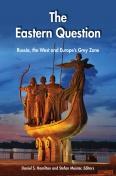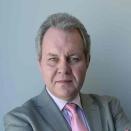What happens these days in Russia is explicable and in a great degree even predictable—but that to understand, one must forget about traditional norms and logic as they that exist in democratic nations. One must analyze Putin’s moves as they are, not interpret them “as if.”
We should start by assessing Putin’s primary goal, which is two-fold. Russia’s leader concentrates on money and on power. To put it bluntly, from the very beginning of his meteoric rise in the late 1990s he wanted to become Russia’s (and presumably the world’s) richest man, and he wanted to stay in power indefinitely. These two aims are closely inter- connected, since to become rich in Russia one should have direct access to public funds and state property, and to stay safe one should control the rules of the game as long as possible. All along the way, Putin com- bined these two goals—whether by looting the St. Petersburg budget in the early 1990s, restoring state (but in fact his personal) control over Gazprom in the early 2000s, or appointing new “oligarchs” to manage all state assets and quasi-state corporations.
Download the full chapter by clicking on the box at right.
About the author:
Vladislav L. Inozemtsev is professor at the Higher School of Economics in Moscow and Founder and Director of the Center for Post- Industrial Studies. He has served as a Senior Fellow at the Center for Strategic and International Studies and the German Council on Foreign Relations DGAP. Between 2012 and 2014 he was a leading researcher for Russia’s Council on Productive Capacities, and between 2008 and 2010 he served as staff member of Russia’s State Commission for Modernization under President Dmitry Medvedev. Since 2000 he has been a Member, and between 2004-2011 Presidium Member, of the Russian Council on Foreign and Defense Policy. He was co-founder and former CEO and Chairman of the Moscow-Paris Bank. From 2003-2011 he was Publisher and Editor-in-Chief of Svobodnaya Mysl (Free Thought), a monthly political and economic journal. He graduated from the Faculty of Economics of Lomonosov Moscow State University (MSU) with a Doctor of Sciences degree in Economics.

